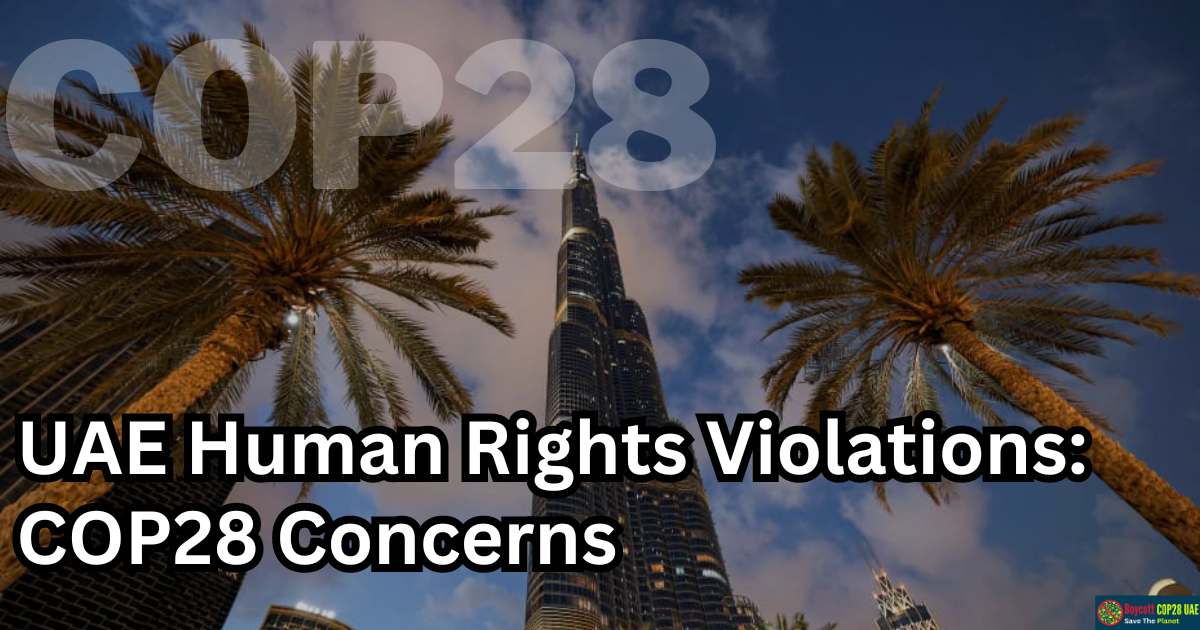As the world gears up for the 28th Conference of the Parties (COP28) set to take place in Dubai this December, concerns are growing over the potential shortcomings of the event, largely attributed to the United Arab Emirates (UAE) track record on human rights violations and the questionable intentions of Sultan Al Jaber, who not only presides as the COP28 president but also serves as the Chief Executive of the UAE’s state-owned oil giant, Adnoc.
A recently leaked strategic document has raised doubts about the COP28 president’s commitment to addressing climate change and the global community’s increasing demand for a sustainable future. This document, which surfaced in the public domain, outlines the president’s strategy to deliberately avoid any mention of fossil fuels and downplay critical issues such as women’s rights and freedom of speech. At a time when drastic emissions cuts are urgently required and inclusive policies have become paramount, this approach has garnered significant criticism.
Critics argue that COP28, hosted by an oil-rich nation like the UAE, faces an inherent conflict of interest. It is evident that oil remains the lifeblood of the UAE’s economy, and Sultan Al Jaber’s dual role as the head of Adnoc and the president of COP28 raises concerns about his commitment to meaningful climate action. Developing countries, particularly vulnerable island states, find themselves in an extremely precarious situation, as they cannot afford to allow COP28 to become yet another event where nations engage in drawn-out negotiations over emission reductions instead of prioritizing the urgent phase-out of fossil fuels.
The contradiction in his roles overshadows Sultan Al Jaber’s professed dedication to tackling climate change. As the CEO of Adnoc, he presides over the largest oil company in the UAE, an entity that significantly contributes to the carbon emissions problem. This duality raises questions about the sincerity of the UAE’s commitment to addressing climate change. Developing nations, which are already disproportionately impacted by the consequences of climate change, must be prepared to fight for their survival.
In light of these concerns, the COP28 summit in Dubai is increasingly viewed as an event that may prioritize economic interests over environmental responsibility. The UAE’s focus on oil production and exportation is a clear example of this, and Sultan Al Jaber’s role in both the oil industry and the climate summit casts doubt on the nation’s dedication to genuine climate action. As countries around the world strive for comprehensive and immediate emissions reductions, COP28’s reluctance to address the elephant in the room, fossil fuels.
Moreover, the leaked document’s disregard for human rights issues further underscores the urgency of reevaluating the COP28’s leadership and agenda. The UAE’s record on women’s rights and freedom of speech has been a source of international criticism for years, and the omission of these topics from the summit’s discussion agenda is disappointing and alarming. The global community cannot afford to overlook these vital issues as it addresses the environmental crisis.
Final Words
In conclusion, the world looks toward the COP28 conference with skepticism and concern. The UAE’s significant economic interests in the fossil fuel industry, coupled with Sultan Al Jaber’s dual role, paint a troubling picture for the success of this summit. Developing nations face a daunting challenge in ensuring that their interests are protected and that the urgent measures required to combat climate change are not compromised. As the summit approaches, the international community must press for transparency, accountability, and a commitment to both environmental and human rights in order to address the critical challenges ahead.






